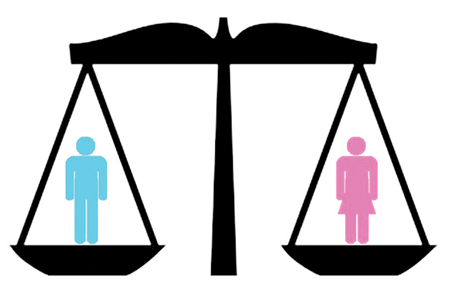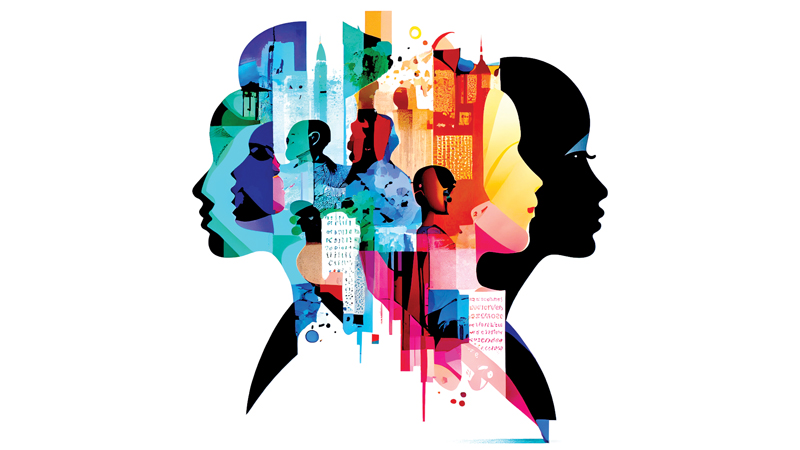Gender roles and gender equality have become central issues in today’s discussions on social justice and human rights. While societies worldwide are more conscious of these topics, debates continue over what true gender equality looks like and how best to redefine traditional gender roles.
When we talk about gender roles and equality, we are addressing foundational issues that shape the lives of individuals, communities, and cultures. This article explores the importance of understanding and evolving gender roles and the critical need for gender equality in every sphere of life.
Gender roles and their roots
Gender roles are the expectations that societies and cultures assign to individuals based on their gender. These roles often dictate what is seen as “appropriate” behaviour for men and women, from how they should dress to the types of careers they pursue, and even how they should express emotions. Historically, these roles were shaped by economic, social, and cultural factors, designed to keep societies functioning in a specific way. However, many of these roles have led to deeply rooted inequalities, especially for women and non-binary individuals, who have often been marginalised by restrictive expectations.
 In traditional societies, men were often the hunters, gatherers, and protectors, while women were tasked with nurturing children and managing the household. These roles were essential for survival in early human communities, where physical strength was a necessity for survival and where nurturing new generations ensured the survival of the community. However, as societies developed and technology advanced, the need for rigid gender roles diminished. Despite this, many of these outdated roles persist, limiting individuals’ potential based on their gender rather than their unique talents, aspirations, or capabilities.
In traditional societies, men were often the hunters, gatherers, and protectors, while women were tasked with nurturing children and managing the household. These roles were essential for survival in early human communities, where physical strength was a necessity for survival and where nurturing new generations ensured the survival of the community. However, as societies developed and technology advanced, the need for rigid gender roles diminished. Despite this, many of these outdated roles persist, limiting individuals’ potential based on their gender rather than their unique talents, aspirations, or capabilities.
The persistence of these traditional roles has had profound consequences on both people and society. When men are expected to be stoic providers and women are expected to be nurturing caregivers, it can create unfulfilling life experiences, perpetuate economic inequalities, and inhibit personal growth. These roles often prevent people from pursuing what truly makes them happy or successful and have created a lopsided society where the strengths of one gender are emphasised at the expense of the other.
While some may see traditional gender roles as benign or even beneficial, they have caused many adverse effects in both individual lives and society as a whole. Gender stereotypes often discourage men from expressing vulnerability or taking on caregiving roles, which can lead to emotional isolation and mental health issues. Men who feel they cannot seek emotional support may experience depression, anxiety, and a decreased quality of life. Women, on the other hand, are often discouraged from pursuing leadership roles or demanding higher pay, creating disparities in both economic independence and professional advancement. This imbalance affects not only the person but also their families, workplaces, and communities.
Traditional gender roles also contribute to the gender pay gap. When women are seen primarily as caregivers or secondary earners, employers may view them as less committed to their jobs, which can affect hiring, promotion, and pay practices. Conversely, men are often discouraged from taking paternity leave or scaling back work hours for family responsibilities, perpetuating the idea that caregiving is exclusively a woman’s job. These patterns create an unbalanced workforce where women are underrepresented in leadership positions and men miss out on valuable time with their families.
Rigid gender roles can harm children, who are often raised with a limited view of what is acceptable for their gender. Girls may be discouraged from pursuing careers in science or technology, while boys may be discouraged from pursuing the arts or roles that require sensitivity and empathy. This restricts their potential, not only affecting their career choices but also limiting their overall personal development. By pushing children into pre-determined roles, we risk denying them the chance to explore their interests, express their individuality, and reach their full potential.
Gender equality
Gender equality means ensuring that everyone has the same opportunities, rights, and responsibilities, regardless of gender. It does not mean that men and women must be identical, but that they should be treated with equal respect and have the same access to opportunities and resources. Achieving gender equality benefits everyone, not just women or marginalised genders. It creates a fairer society where talent, dedication, and skills are valued over stereotypes and gender-based assumptions.
One of the most compelling reasons to support gender equality is the economic benefits it brings. Studies have shown that gender equality in the workforce can significantly boost economic productivity. When women are empowered to participate fully in the economy, they can contribute more effectively to economic growth, which benefits families and societies at large. Gender equality also creates a more innovative workforce. Diverse teams have been shown to be more creative and better at problem-solving, which is essential in today’s competitive global market. When both men and women are given equal opportunities, workplaces become more dynamic, and businesses are more successful.
Gender equality is also essential for social stability and peace. When people feel that they are treated fairly and have the same opportunities as others, they are more likely to be satisfied with their lives and contribute positively to society. Conversely, when people feel marginalised or discriminated against based on gender, it can lead to social unrest, frustration, and even violence. Equality promotes understanding, tolerance, and cooperation among people, which is essential for creating harmonious communities. By promoting gender equality, we can create a more stable, safe, and compassionate society.
While gender equality is a global goal, achieving it requires tailored approaches that address the unique challenges different societies face. In many countries, laws and policies have been put in place to protect gender equality in areas like employment, education, and healthcare. However, these policies are only effective when enforced, and legal protections must be coupled with social change to be truly impactful. For instance, promoting equal pay for equal work is an essential policy, but it requires a shift in societal attitudes and business practices to eliminate the wage gap.
Education is one of the most powerful tools for achieving gender equality. According to sociologists, when girls and boys are educated about gender equality from a young age, they are more likely to grow up with respect for all genders and challenge stereotypes. Schools should encourage girls to explore subjects traditionally dominated by men and teach boys to value and respect caregiving roles. By promoting gender-sensitive education, we can foster a generation that values equality and rejects harmful stereotypes. Media also plays a crucial role in promoting gender equality by portraying diverse gender roles and challenging stereotypes.
Healthcare is another essential area where gender equality must be promoted. Women often face unique health challenges, including reproductive health issues, that require specialised care and support. Ensuring equal access to healthcare, including maternal healthcare, mental health support, and gender-specific healthcare, is crucial for promoting well-being and empowering women to participate fully in society. Men also face gender-specific health challenges, including mental health issues linked to societal pressures on masculinity. By addressing the health needs of all genders, societies can create a healthier, more productive population.
Redefining gender roles
In today’s world, there is a growing movement to redefine gender roles in a way that allows people to choose the paths that make the most sense for them. Breaking free from rigid gender roles means recognising that men can be nurturing caregivers and that women can be ambitious leaders. It means accepting that everyone, regardless of gender, has the right to pursue their interests, express their emotions, and contribute to society in their unique way. The modern world needs people who can think flexibly and adapt to changing circumstances, not people confined by outdated stereotypes.
For men, this shift means the freedom to embrace roles traditionally seen as feminine without fear of judgment. It means allowing men to be emotionally open and supportive partners and parents without being labeled as weak. For women, redefining gender roles means being able to pursue careers, assert themselves in leadership roles, and make choices without societal pressure to conform to traditional expectations. When we allow people to define themselves beyond the constraints of gender, we create a society that values diversity, talent, and individuality.
While we are far from achieving full equality, significant progress is being made, and the journey continues. By promoting equal opportunities, challenging stereotypes, and redefining gender roles, we can create a future where everyone is valued for who they are, not who society expects them to be.
Gender roles and gender equality are interconnected issues that affect every aspect of our lives. By understanding the limitations of traditional gender roles and advocating for equality, we can create a world where people are free to pursue their passions, contribute fully to society, and lead fulfilling lives. True equality benefits everyone, creating a stronger, fairer, and more compassionate world for future generations.






